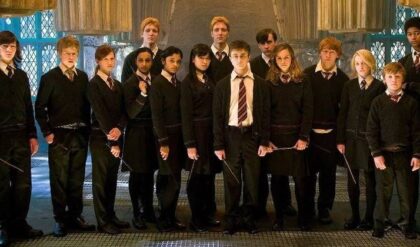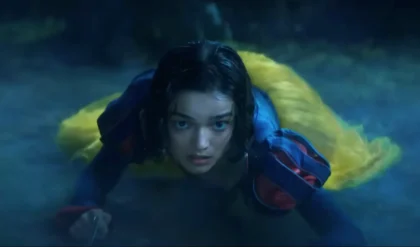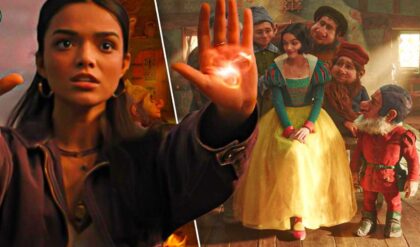t’s a few days after Kali Reis learned she’s been nominated for an Emmy for her supporting role in True Detective: Night Country, and the boxer turned actor admits she hasn’t thought too much about attending the ceremony. But she probably won’t be wearing heels. “I just don’t want to embarrass myself—I look like a baby giraffe in heels,” she says with a laugh.
What Reis does know is that she plans to wear some traditional Wampum jewelry, or find another way to highlight her cultural background. “We don’t get a lot of opportunities to show the world how Natives step out on some special occasions,” says Reis. “I’m really excited to be able to make this a special moment for everybody.”

When Reis, who is from the Seaconke Wampanoag people and also of Cape Verdean descent, does step onto that Emmys red carpet, she’ll do so as one of the first two women of Native American descent to ever be nominated for an Emmy. (The other is Lily Gladstone, also up for supporting actress in a limited series or TV movie this year.) It’s just the latest in a long line of “firsts” that Reis has accomplished. As a professional boxer for 16 years, she earned six world titles, was the first Indigenous woman fighter to become a world champion, and made history when she participated in HBO’s first-ever women’s televised fight in 2018.
On True Detective: Night Country, Reis stars opposite Jodie Foster as Trooper Evangeline Navarro, a Iñupiat and Dominican state trooper who is haunted by a missing woman case that was never solved. Reis captures Navarro’s tough exterior, but also reveals the battles that rage inside her. It’s the kind of performance that we’d expect from a seasoned actor, but Reis is relatively new to this world; she had only two films under her belt when she was cast on True Detective. Just as she did with boxing, Reis is forging her own path—one that already includes an Independent Spirit Award nom and an Emmy nom—while opening the door for people who look like her, and who have been continuously underrepresented in Hollywood.
“There’s a lot to carry, but I’m capable, and it’s not a burden at all—it’s an honor,” she says. “I’ve done all this work for so many: for the people who can’t, who aren’t here anymore, who can’t speak, who can’t fight, or who have wanted this opportunity but didn’t have [it].”
Reis and Jodie Foster in True Detective: Night Country.
Courtesy of HBO Max.
Spending years in the male-dominated sport of boxing, Reis learned she had to speak up for herself because no one else would. It’s a skill she’s been able to transfer to her burgeoning Hollywood career. “It is funny because I remember when we first started our promotion tour for True Detective, I think a couple of people were, rightfully so, nervous. There’s a lot to handle with this,” she says. “And I was just like, ‘Oh, yeah, whatever. I’ll figure it out.’”
She says that while Hollywood might feel tough, it’s nothing compared to boxing. “Y’all are nice here,” she says with a laugh. “In boxing, it is the name of the game to heckle each other, talk a bunch of stuff. I’ve had to speak up for myself and nobody was there to speak up for me in so many different rooms that I wasn’t ‘supposed’ to be in.”
Reis grew up with many identities, beyond being biracial. She identifies as two-spirit, a term used by some Indigenous people to describe individuals who identify as having both a masculine and feminine spirit. She had many different interests, going to school for criminology, learning how to repair motorcycles, and working as nightclub security before she became a successful boxer.
That feeling of having multiple identities but not fitting entirely into any of them helped her relate to Navarro. But in many other ways, Navarro is very different from Reis, who made her acting debut in the 2021 thriller Catch the Fair One.
Having experienced her own issues with law authorities (she filed a lawsuit against the city of Providence in 2015, stating that she was assaulted by a police officer; a settlement was reached in 2017), Reis had to wrap her head around how she’d play a state trooper. She picked the brain of a friend’s mother, who worked as Alaskan law enforcement. But her biggest priority was to correctly represent the Iñupiat community. “I’m mixed Indigenous, but I’m not Alaskan. I’m not Iñupiaq. I’m not from that region,” she says. “So I needed to know what it’s like…. What is it like going through the long night? What is it like having a dinner? What is it like?”
She spoke to people with a similar background to Navarro. She also journaled as her character and gave her a backstory, a birthday, and a zodiac sign. “I love building backstories,” she says. “There’s things that you’ll never know about Navarro that I know, because I need to have that in her psyche.”
That backstory was key, because Navarro isn’t very outwardly expressive. Tapping into her inner turmoil would be Reis’s biggest challenge. “The shell is great—I can bring a hard-ass look, whatever. That’s kind of the easy stuff,” she says. “The hard stuff is the stuff she doesn’t say.”
The end of the series—and Navarro’s ending, especially—has raised a lot of questions for fans. In the last episode, Navarro is seen walking off onto the ice, perhaps finally giving in to the voices that have always pulled at her. In the final scene, we see Foster’s Danvers at a lakeside cottage, joined by an almost spectral Navarro. Is she alive? Is she dead? Reis has heard many different interpretations. “It touches my heart because people are still talking about it,” she says. “I enjoy seeing the different theories and people asking me questions.”
But she’s never told a soul—not her mother, not her husband, not her friends—what she knows about what happens to Navarro. “The beauty about telling stories, reading a book and seeing a film and watching the show, is that you can always still make up your own thoughts about what you think happened. And it’s right—whatever you think, it’s right.” It’s the part of Navarro she’ll keep forever, just for her.
Reis, who now lives in Philadelphia, has already filmed several more movies: Mercy, a sci-fi thriller that also stars Chris Pratt and Rebecca Ferguson; Wind River: The Next Chapter, a sequel to the 2017 film; and Rebuilding, a cowboy drama that stars Josh O’Connor.
And she’s on the hunt for what’s next. She knows she wants to collaborate with more Indigenous writers and filmmakers. She would love to do a comedy. And she hopes to use her physicality more in the future. “I mean, would I love to be a female John Wick? Of course. Why not?”




